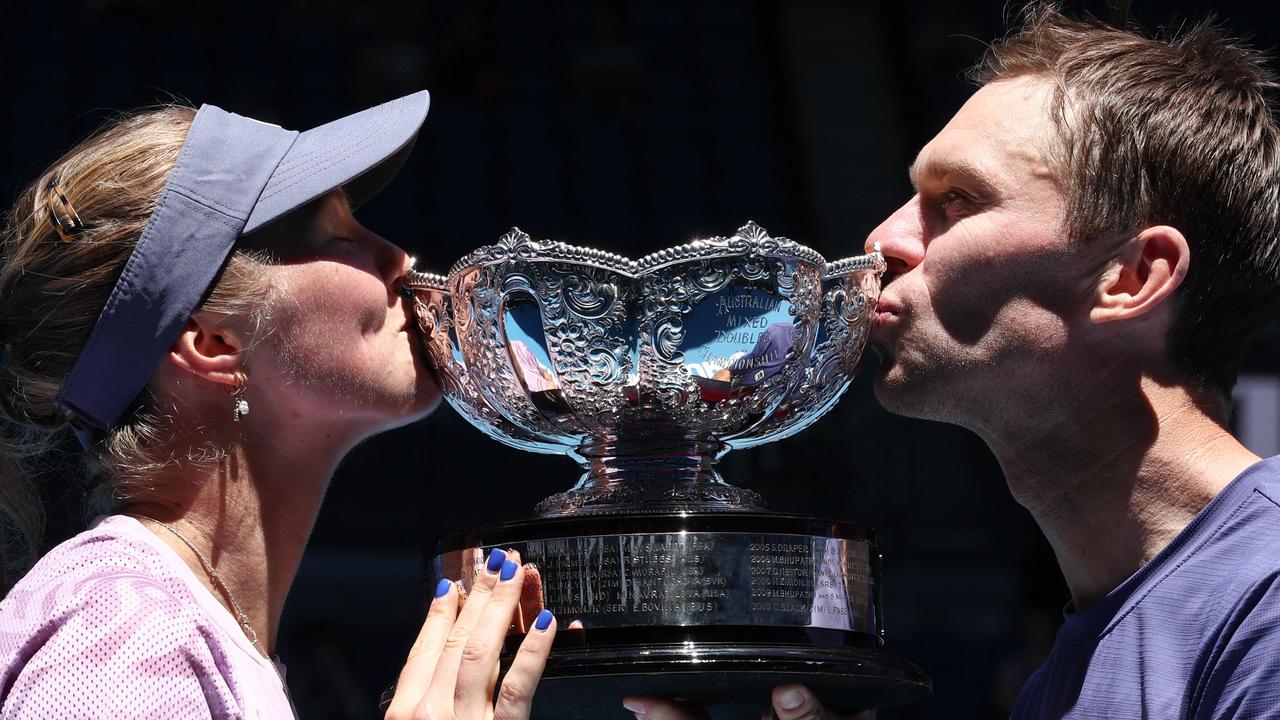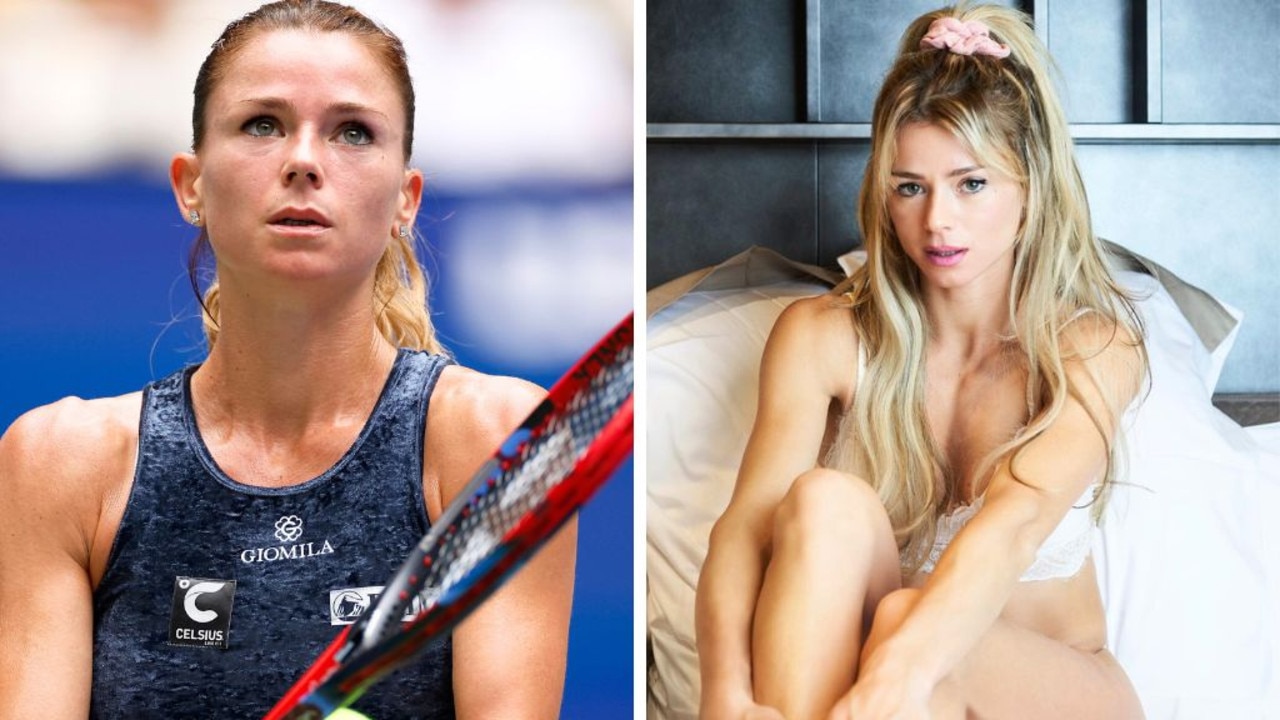Australian Open 2024: Aryna Sabalenka says later starts could be curbed by opening sessions with women’s matches
The Australian Open began with yet another late night despite attempts to curb bleary-eyed finishes. Defending champion Aryna Sabalenka has urged organisers to put women’s matches on first to curb the late finishes.
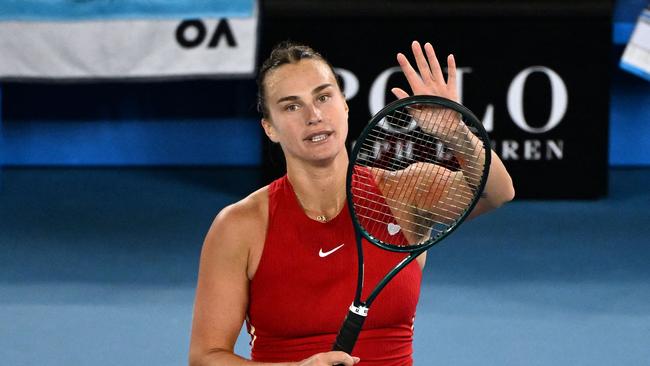
Tennis
Don't miss out on the headlines from Tennis. Followed categories will be added to My News.
A leading hope for this year’s Australian Open women’s crown has mounted the case for the men to start second in night sessions to counter late finishes as the tournament chief warned schedule changes did not provide a guarantee against bleary-eyed grand slam battles.
Debate over late-night finishes was back on the agenda at Melbourne Park on Monday after defending women’s champion Aryna Sabalenka didn’t start her first match of the tournament until close to midnight on Sunday after Novak Djokovic’s four-hour, four-set epic against Serbian qualifier Dino Prizmic.
Sabalenka responded to the late start on Rod Laver Arena with a straight sets demolition of German qualifier Ella Seidel, 6-0 6-1, in less than an hour to ensure she was off the court shortly after 12.30am on Monday morning.
But the midnight match in front of a half-empty crowd forced tournament boss Craig Tiley to defend the move to add an extra day to the event on Sunday in a bid to help alleviate the possibility of obscene late night - or early morning - finishes, which have created headlines at the Open in the past.
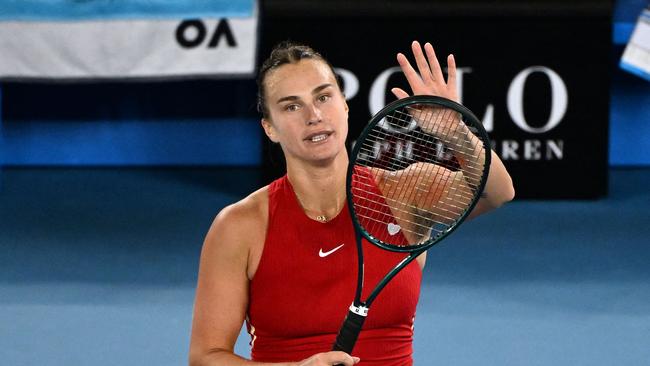
The ATP and WTA will this year trial new scheduling requirements that force night sessions to begin no later than 7:30pm and prevent any match from going on-court after 11pm.
But the Australian Open - and other grand slams - are not bound by those tour rules.
Instead, the tournament added an extra day on Sunday and reduced the number of day session games on Rod Laver from three to two.
Women’s No.4 seed Coco Gauff said she was in favour of starting the women’s matches first, but understood the challenges the officials faced organising the schedule.
FOLLOW ALONG WITH ALL THE LIVE DAY TWO COVERAGE HERE
“If I’m going to play night, I always would like to play the first night match, because usually typically the women’s, our longest match is three hours usually,” Gauff said after her first-round win.
“It’s like a tough thing because, yes, at night is probably our prime time and we can optimise viewers, but also we have to protect the players’ health. It’s like a fine line.
“Personally, if I’m the women’s match at night, I would love to play the first night match and not the second one. I would like to see that.
“But at the same time it’s tough with also Novak …he’s won this more times than I can count.
“I get both sides of it. I’m going to always go for the players’ side, but I also can understand the media and the marketing and optimising the money side. So it’s tough.”
Tournament director Tiley said the schedule changes had taken the “edge off” the potential for late finishes, but said they could not always be avoided.
“We finished at 12:35am and what we have always said is we have taken the edge off having the possibility of having later finishes,” Tiley told Channel Nine on Monday.
“But you can never guarantee. No one would have predicted Novak would have gone over four hours to play a qualifier … you would not have predicted that putting a schedule on.
“It’s going to happen and it will happen again, it could happen tonight or tomorrow night.”
Asked about the possibility of the women playing first at night to prevent the uber-late finishes due to men’s best-of-five matches, Tiley said the schedule would be evenly split between the men and women being first on court for the prime time session this week.
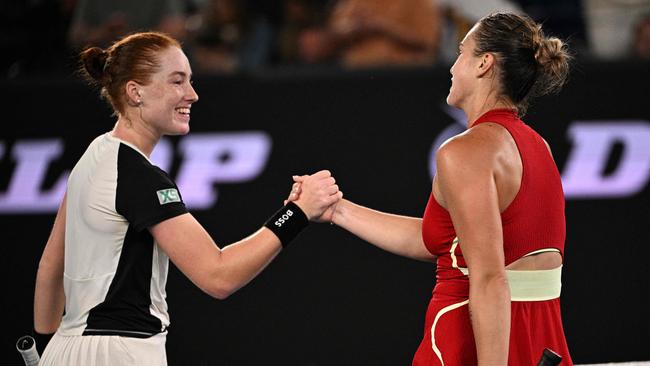
No.3 seed Elena Rybakina will start first on centre court for her match against Karolina Pliskova on Tuesday night before Carlos Alcaraz and Richard Gasquet take the court.
But the men will start first for the night session on Margaret Court Arena for the all-German battle between Alexander Zverev and Dominik Koepfer.
“There is so many variables that go into making a decision, it’s not just in isolation of one person or one match,” Tiley said.
“If you have a look at it by the end of the week, the number of women’s matches that will be starting at 7pm, the men’s matches starting at 7pm, both on MCA and Rod Laver is you are going to find it will be fair and even at the end of it.
“There are TV considerations, player considerations, break considerations, more than 20 variables per match that go into the considerations.”
Djokovic suggested a contributing factor to the late finish in his game stemmed from a move to allow fans outside to return to their seats between each game and not just the change of ends like previous years.
“Today we lost quite a bit of time when they were letting people in to come to their seats, even though it was not a changeover. My opponent would wait for them to sit down. It dragged a lot,” Djokovic said.
“I don’t know if it’s really the best rule, but I do understand from a tournament and fan perspective it’s probably better because they don’t want to wait. They want to come out and enjoy every single point.”
DEFENDING CHAMP PAYS PRICE FOR STUBBORN AUS OPEN ORGANISERS
— Callum Dick
Defending Australian Open champion Aryna Sabalenka stepped onto a half-empty Rod Laver Arena at 15 minutes to midnight as the first cracks in this year’s tournament scheduling were laid bare on opening night.
The world No. 2 mercilessly dispatched German qualifier Ella Seidel 6-0 6-1 in less than an hour to spare the stoic fans who stayed behind a longer than necessary AM exit.
But Sabalenka deserved a far grander return to Melbourne Park than the one which was served up on Sunday night (just).
“I feel all the support and atmosphere … thank you so much for staying that late and supporting us,” said Sabalenka on-court after 12:30pm.
“It’s really important, thank you.”
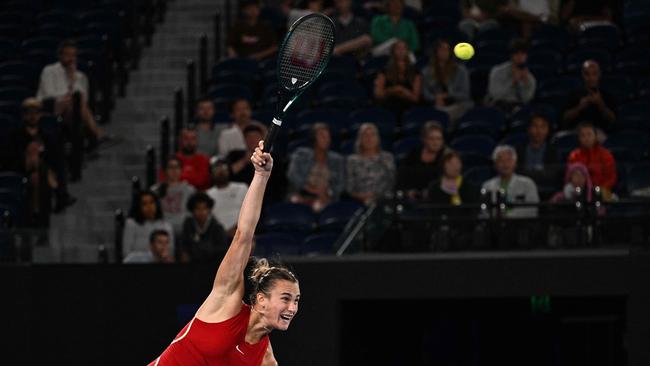
The ATP and WTA will this year trial new scheduling requirements that force night sessions to begin no later than 7:30pm and prevent any match from going on-court after 11pm.
However, despite Thanasi Kokkinakis and Andy Murray’s ridiculous 4am finish at Melbourne Park in 2023, Australian Open organisers decided not to run to that schedule at this year’s tournament.
After years of ignoring cries for a curfew in the wake of almost-sunrise finishes like Kokkinakis-Murray, the response was instead to add an extra day to the schedule and introduce a five-match per-court limit.
That, they said, would solve the riddle.
“We’ve listened to feedback from the players and fans and are excited to deliver a solution to minimise late finishes while continuing to provide a fair and equitable schedule on the stadium courts,” Australian Open tournament director Craig Tiley said in October.
But if not for a speedy stage left from Novak Djokovic after his four-hour first round epic, Sabalenka would have begun her title defence on the traditional Monday anyway.
That and only four matches were featured on Rod Laver Arena on Day 1 regardless.
Opening day ended with news that Sabalenka’s post-match press conference had been cancelled.
Fans would not be able to hear from their reigning champion after her triumphant return to Rod Laver Arena.
The schedule had less of an impact on Djokovic, who was slated to start his title defence at 7pm but instead after the pomp and circumstance of the opening ceremony began closer to 7:30pm.
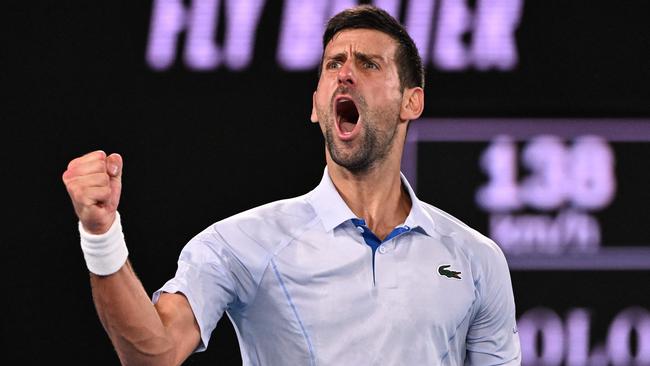
That despite Rod Laver Arena laying unused – apart from two practice sessions – for two hours prior.
When Djokovic did take to the court, his 18-year-old opponent pushed him to four sets and the longest Grand Slam first round match of his career.
Stopping the clock at four hours and one minute meant Sabalenka’s start came on the cusp of midnight.
Djokovic suggested part of the problem stemmed from a different rule change – one that he was not aware of until only recently.
For the first time at the Australian Open, fans outside the stadium are being allowed to return to their seats between each game and not just the change of ends like previous years.
In what was considered a boon for fans who did not want to miss a moment of the action only served to frustrate Djokovic, who repeatedly asked the chair umpire to hurry patrons to their seats.
He suggested the rule also caused delays in the on-court action as players waited for fans to find their seats before resuming the match.
“Look, I mean, I understand the motive behind it is to enhance and improve the experience for fans, right?” Djokovic said.
“We do play for fans. We want fans to have a great, thrilling experience of being out on the court.
“It’s hard, I must say. I understand that and I support it to some extent, but at the same time all my career, all my life I’ve been used to some kind of atmosphere. When that changes, it kind of messes up (and) distracts you a bit.
“Today we lost quite a bit of time when they were letting people in to come to their seats, even though it was not a changeover. My opponent would wait for them to sit down. It dragged a lot.
“I don’t know if it’s really the best rule, but I do understand from a tournament and fan perspective it’s probably better because they don’t want to wait. They want to come out and enjoy every single point.”
More Coverage
Originally published as Australian Open 2024: Aryna Sabalenka says later starts could be curbed by opening sessions with women’s matches




